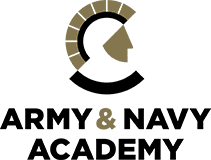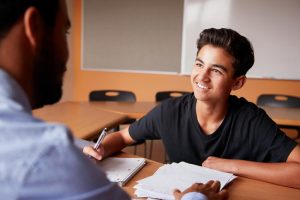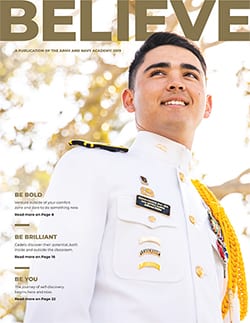It is critically important to find the right boarding school if your child has been diagnosed with a learning difference (aka “learning disability”). In this article, learn how to find the right boarding school through various resources and online platforms. Also, discover key information, commonly asked questions, and data to help inform your educational decisions.
Before you begin, remember that finding the best boarding school for your child or teen may require some research and time on your part. As you search, keep in mind that only some boarding schools offer specific programs for students with learning differences. However, do not be discouraged by this as there are some exceptional private boarding schools that are extremely supportive of cognitive diversity and offer stellar learning strategies programs.
Resources to Find the Right Boarding School
To find boarding schools with learning strategies programs, here are some resources below. Remember there are many choices out there!
At last count, there were over 170 boarding schools offering programs and/or support for learning differences. As you search, make sure you narrow down your preferences by location, single-gender or coed, denominational or non-denominational, and grade levels.
- Boarding School Review – This is a great directory website to use if you would like to do side-by-side comparisons of up to three schools. On this site, you can see enrollment numbers, the type of boarding school,, selectivity rate, average test scores, reviews, and other key information.
- Private School Review – If you are looking for a private day school, this directory website could help you narrow your search, but keep in mind that many boarding schools offer day options as well. This site is ideal if you want to find a day or boarding school in your local area.
- Niche – On the left side of the site directory, you can check boxes for the school type (private), specialty (special education), and other criteria.
- Great Schools – In order to view and compare schools, you need to sign up for an account on this site. The site provides directory listings with overview information on each school, reviews, and rankings.
- Regional and National Association Sites – Some national sites will list accreditation (NAIS) and other information; however, some are intended primarily to provide resources for schools.
- Specialized Directory Websites: These websites are specific to a region or specialization. As an examples, The Western Boarding School Association (WBSA) covers boarding schools in the western region of the U.S. and The Association of Military Colleges and Schools of the United States (AMCSUS) only lists military schools and colleges.
- School Websites – Once you have identified 3-5 schools of interest, don’t hesitate to contact the Office of Admission at each school to ask questions. They will be able to help you determine if their school could be a good fit for your child and walk you through the application process. Most boarding schools offer campus tours if you prefer to tour a school prior to applying. As a side note, most boarding schools are for middle school and high school; however, there are some exceptions.
- Independent Educational Consultants Association – If searching for the right boarding school for your child seems overwhelming, some parents are willing to pay a fee to a consultant. These qualified IECA educational consultants will learn about your child, make specific school recommendations, and assist you with the application/admission process.
Note: The directory websites typically offer filters for specific types of searches. Simply go to the search bar or use the filters to refine your search for schools for learning differences.
Frequently Asked Questions about Learning Differences:
What is a Learning Difference vs. a Learning Disability?
Many private schools prefer to use the term “learning differences” or “learning challenges” to avoid learners feeling isolated or labeled by the use of the term “disability.”
However, it is interesting to note the following history and use of terms for advocacy and/or state/federal purposes: According to US News, “the term learning disability was first used in 1963, while learning differences did not appear until recently. Not only is the term learning disability recognized by state and federal governments, it is the preferred term of many advocacy organizations (including the Learning Disability Association of America).”
What percentage of children have learning disabilities? The National Center for Learning Disabilities indicates that “one in five children in the U.S. have learning and attention issues such as dyslexia and ADHD.” It is important for children and teens to know they are not alone. In fact, many famous people have openly spoken about their learning differences, including: Michael Phelps, Kiera Knightly, Steven Spielberg, Justin Timberlake, Cher, Tommy Hilfiger, and many others. Your kids are in good company!
What are the 7 Main Types of Learning Disabilities?
- Dyslexia
- Dysgraphia
- Dyscalculia
- Auditory processing disorder
- Language processing disorder
- Nonverbal learning disabilities
- Visual perceptual/visual motor deficit
How to know the proper diagnosis?
First of all, it is important to be clear on the diagnosis. It is wise to work with practitioners who have the skills, background and experience to test and assess the type of learning issue your child is experiencing. To better understand the various types of learning differences/disabilities, the Learning Disabilities Association of America website could prove useful.
Can kids grow out of learning disabilities?
This is a great misunderstanding amongst many families. The National Center for Learning Disabilities offers key research, but also some checklists and tools for parents. Before you assume your child will outgrow learning issues, read the information below..
“48 percent of parents believe incorrectly that children will outgrow these brain-based difficulties, and 33 percent of educators say that sometimes what people call a learning disability is really just laziness. ‘Children with learning and attention issues are as smart as their peers and with the right support can achieve at high levels, but a lack of early or effective interventions leads too many kids on a downward spiral,’ says Mimi Corcoran, President and CEO of NCLD.”
What is a Boarding School for Learning Differences?
A boarding school for learning differences can be either a highly specialized private school or as mentioned previously, it can simply be a school that offers a support program and/or class.
- Specialized Schools for Learning Differences – Some private boarding schools only accept students with specific learning differences. For example, Gow in New York is known as one of the best boarding schools for learning differences.
- Boarding Schools with Learning Strategies Programs – Some boarding schools have learning centers to address students with special needs, like Dunn School in Ojai, where they offer two different levels: individualized learning strategies and an executive functions group.
- Military Schools with Learning Strategies – Military Schools like Army and Navy Academy, a college prep school geared for boys, offers Learning Strategies as a class to support students with mild to moderate learning differences. With ADD, ADHD, and Dyslexia being so common among boys, the school has a whole team in place to support every boy inside and outside the classroom.
What is a Learning Strategies Program? Learning strategies programs for kids with learning differences typically put an emphasis on study habits and executive function skills. These programs incorporate college prep skills such as: time management, organization, active reading, listening, and participation. Students acquire habits for note-taking, exam prep, and memorization. Some boarding schools even use mindfulness techniques to help students reduce test anxiety. One of the key benefits is that students learn how to self-advocate, set goals, and get the support needed.
Do Boarding Schools offer counseling services? Counseling departments at most boarding schools go well beyond academic scheduling. They have much smaller student loads than public school guidance counselors, so they are able to provide academic scheduling, social/emotional support, and college planning services. Boarding school services often include: individualized counseling sessions, workshops on stress management, college planning, study habits, test prep, and other important topics. Some private boarding schools even provide access to peer counseling programs, tutoring services, and licensed psychologists.
What is an IEP or 504 and how do they differ? IEP stands for individualized education plan. In a nutshell, “IEP plans under IDEA* cover students who qualify for Special Education. Section 504 covers students who don’t meet the criteria for special education but who still require some accommodations. Both ensure that students with disabilities have access to a free and appropriate public education.” – ADDitude (*IDEA stands for Individuals with Disabilities Education Act).
Are all schools required to issue IEPs and 504 plans? Public schools have very specific legal and educational requirements, whereas private schools are not required to issue a 504 or IEP. However, some boarding schools will encourage families to share copies of these plans in order to work up the best approaches to support your child.
Who qualifies for Special Education in the public school system?
According to Purdue University, “eligibility for special education services requires that students have an identified disability that impacts their ability to learn and requires additional services and resources to effectively participate in school. Children who typically qualify for special education services include those with the following disabilities: intellectual disability, hearing impairments (including deafness), speech or language impairments, visual impairments (including blindness), serious emotional disturbance, orthopedic impairments, autism spectrum disorder, traumatic brain injury, other health impairments, and specific learning disabilities.”
Public School, Private Day School or Boarding School?
Whether you decide to enroll your child in the public school system, a private day school or a boarding school, it is important to weigh the pros and cons of each educational choice.
Your child’s education is one of the most important investments you will make in your child’s future and well-being.
Make sure your school of choice will offer your child a learning strategies program suited to their needs, as well as opportunities for your child to pursue their passions in athletics and extracurricular activities.
In the end, let’s all remember that every person is unique; we all face challenges, and every child has a right to find success in school. Let’s embrace cognitive diversity and find the best boarding schools for learning differences!



